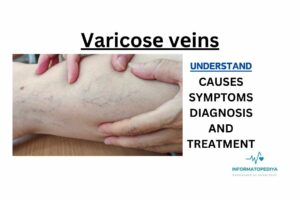
Lifestyle And Well-Being
Table of Contents
Lifestyle Choices for Optimal Well-being: Transforming Your Health and Happiness
Introduction:
The relationship between lifestyle and well-being is undeniable. The choices we make on a daily basis, from our diet to stress management techniques, can have a profound impact on our physical and mental health. By understanding the crucial link between lifestyle and well-being and implementing practical strategies, we can embark on a transformative journey towards a healthier and more fulfilling life. In this article, we will explore the influence of lifestyle choices on our well-being and provide actionable tips for making positive changes.
The Impact of Lifestyle Choices on Health and Well-Being:
1. Nourishing Nutrition:
A balanced diet rich in fruits, vegetables, whole grains, and lean proteins is vital for optimal health. By avoiding processed foods, excessive sugar, and unhealthy fats, we can maintain a healthy weight, regulate cholesterol levels, and reduce the risk of chronic diseases. Nourishing our bodies with wholesome foods is a cornerstone of overall well-being.
2. Active Living:
Regular physical activity is essential for maintaining a healthy weight, improving cardiovascular health, and reducing the risk of chronic diseases. Engaging in activities like brisk walking, cycling, or swimming for at least 30 minutes most days of the week can have a profound positive impact on our overall well-being. Exercise not only benefits our physical health but also releases endorphins that boost mood and reduce stress.
3. Stress Management:
Chronic stress takes a toll on our physical and mental well-being. By incorporating stress management techniques such as exercise, meditation, deep breathing exercises, or seeking therapy, we can mitigate the harmful effects of stress. These practices promote relaxation, enhance resilience, and foster a positive mindset. Finding healthy ways to cope with stress is crucial for maintaining balance and well-being.
4. Restorative Sleep:
Adequate and restful sleep is essential for our health. Prioritize getting 7-9 hours of quality sleep each night to allow the body and mind to rejuvenate. Establish a relaxing bedtime routine and create a sleep-friendly environment to promote deep and restorative sleep. Quality sleep enhances cognitive function, mood, and overall well-being.
5. Holistic Self-Care:
Self-care is vital for maintaining a balanced and fulfilling life. Engage in activities that nurture your physical, mental, and emotional well-being. Practice mindfulness, yoga, or engage in hobbies that bring joy and relaxation. Allocate time for yourself, connect with loved ones, and pursue activities that recharge and inspire you. Self-care is an act of self-love and a powerful tool for cultivating well-being.
6. Meaningful Connections:
Nurturing meaningful relationships and cultivating a sense of belonging are essential for our well-being. Invest time and effort in building and maintaining strong social connections. Engage in activities with friends, family, or communities that foster a sense of camaraderie, support, and joy. Meaningful connections provide emotional support, enhance happiness, and contribute to overall well-being.
Embracing a Lifestyle of Well-Being:
1. Start with small, sustainable changes:
Focus on making gradual adjustments to your lifestyle choices. Small changes, implemented consistently, can lead to significant long-term improvements. Choose one area to focus on initially and gradually incorporate additional changes over time.
2. Set realistic goals:
Establish specific, achievable goals that align with your individual needs and preferences. This will help you stay motivated and track your progress effectively. Celebrate milestones along the way to maintain enthusiasm and commitment.
3. Seek support:
Don’t hesitate to reach out for support from loved ones or professionals. They can offer guidance, encouragement, and accountability on your journey towards a healthier lifestyle. Sharing your goals and progress with others can provide valuable support and motivation.
4. Practice self-compassion.
Embrace self-compassion, and treat yourself with kindness and understanding. Acknowledge that lifestyle changes take time, and setbacks are a natural part of the process. Be gentle with yourself and use setbacks as learning opportunities to adjust and continue moving forward.
Conclusion:
By recognizing the powerful impact of lifestyle choices on our well-being, we can take proactive steps to improve our health and happiness. Nourishing nutrition, regular physical activity, effective stress management, restorative sleep, holistic self-care, and meaningful connections all play integral roles in creating a life of optimal well-being. Embrace the journey towards a healthier lifestyle, and remember that every positive choice you make is an investment in your present and future well-being. Start small, be consistent, and enjoy the transformation that unfolds as you cultivate a lifestyle that promotes your overall health and happiness.






